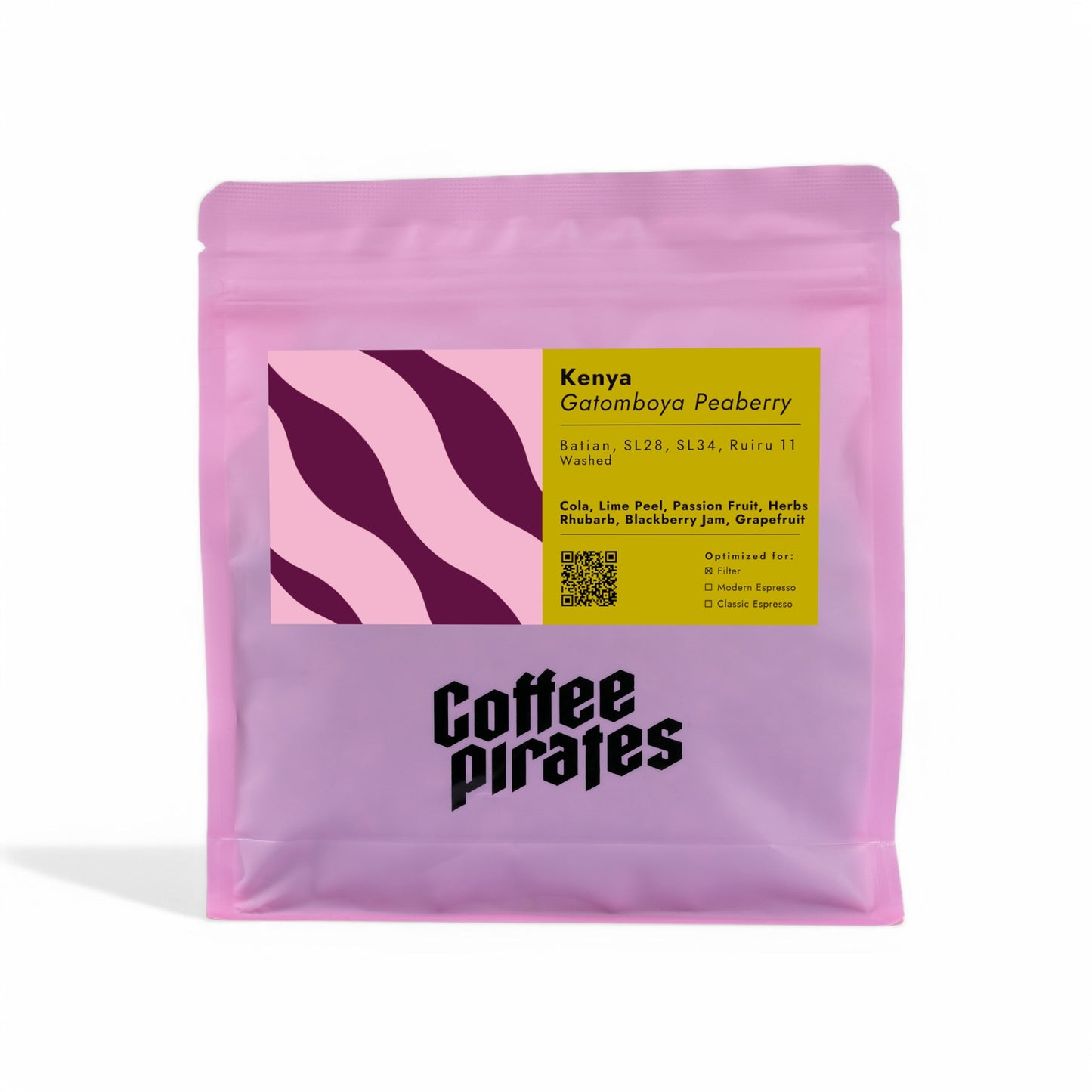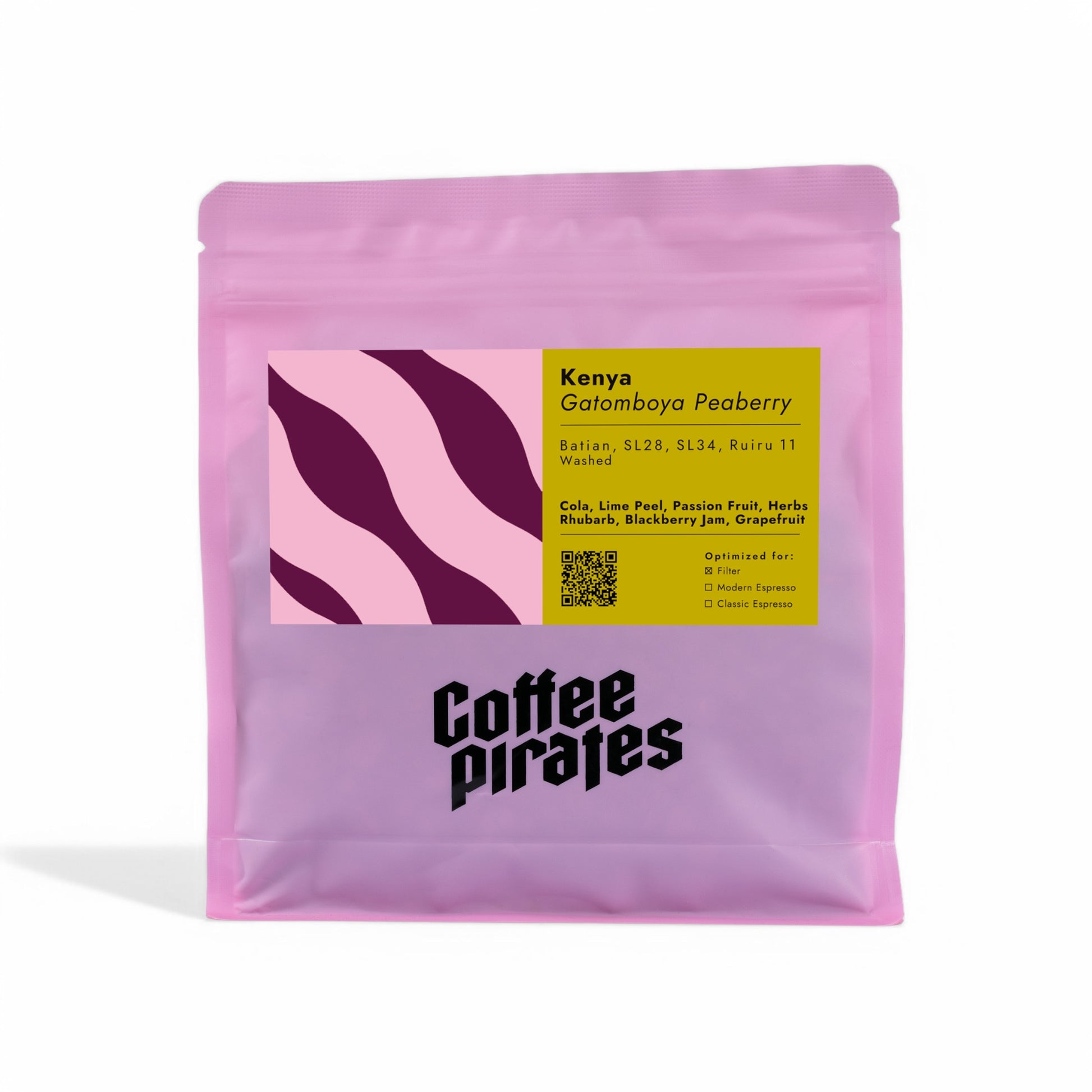Kenya Gatomboya PB
Kenya Gatomboya PB





Couldn't load pickup availability
How Much & How Often
How Much & How Often
Not sure how much coffee you need?
| Cups a week | 250g bag |
| 1-4 | 1 bag a month |
| 5-8 | 2 bags a month |
| 9-12 | 3 bags a month |
| 13-16 | 4 bags a month |
1 cup of coffee = a 240 ml serving based on a 1:16 brew ratio
For example, if your brew ratio is 1 to 16 (often expressed 1:16, or 1/16), then for every one part coffee, you use 16 parts water. In other words, to prepare 1 cup of brewed coffee you would use 15g of ground coffee and 240 ml of water.
Shipping & Delivery
Shipping & Delivery
We ship daily from Monday to Friday from our locations in Vienna. The minimum order value is €20.
Deliveries in Austria
- 2-4 business days
- Free at €35
- €4.50 shipping for orders below €35
Deliveries to Germany
- 2-7 business days
- Free at €70
- €9.90 shipping for orders below €70
Deliveries to countries within the EU, other than Germany
- 3-10 business days
- Free at €70
- €14.90 shipping for orders below €70
Ethically Sourced, Fairly Paid
Ethically Sourced, Fairly Paid
We work closely with coffee farmers and reliable partners to ensure fair wages and transparent relationships.
Behind the Cup
Behind the Cup
We source this coffee through Cafe Imports in Berlin.
Gatomboya factory is operated by the Barichu Farmer Cooperative Society (F.C.S.), which has about 1,000 smallholder members, about 900–950 of whom are active. The farmers grow on very small plots, and also tend macadamia, corn, bananas, and beans. Cherries here are sorted, depulped, fermented overnight before being washed, and then placed on raised beds for 10–12 days.
Barichu is located in Nyeri, a region which is situated between Mt. Kenya and the Aberadare Mountains, creating a perfect geographic and climactic area for coffee production. This area is historically the center of Kenya's coffee production due to the rich soil and fresh water moving through the area from the mountains. This region is home to the Kikuyu people, who have resided between the mountains for centuries. This area is rich with forests, wildlife, eucalyptus, bamboo, and rainforests.
Most of Kenya's coffee is produced by smallholders delivering to factories (central processing units) who predominantly produce Washed coffees. Estates are also best-known for their Washed lots. The Washed process in Kenya may vary slightly from place to place, but it generally contains a soaking step that is unique to this growing country. First the coffee is picked ripe and depulped the same day, then it is normally fermented in open-air tanks made of concrete or cement for 24–48 hours. It's then washed thoroughly using water channels before being soaked underwater for 12–72 hours. It is then spread on raised beds to dry.






